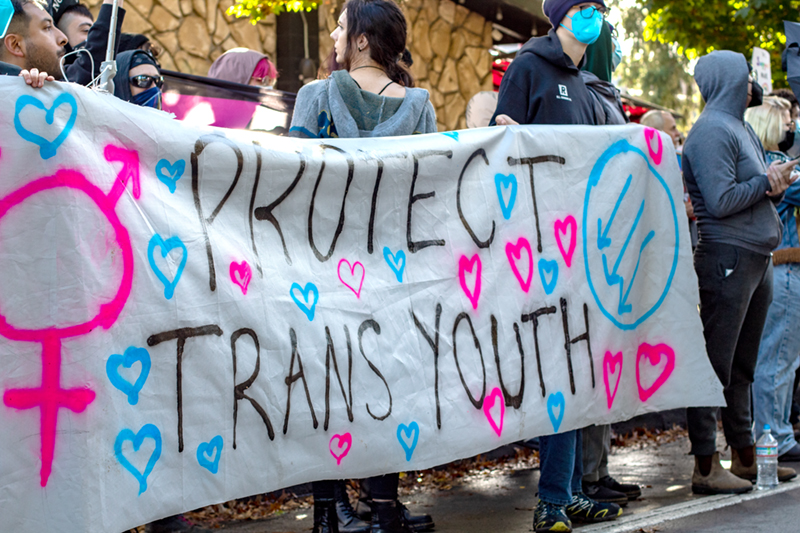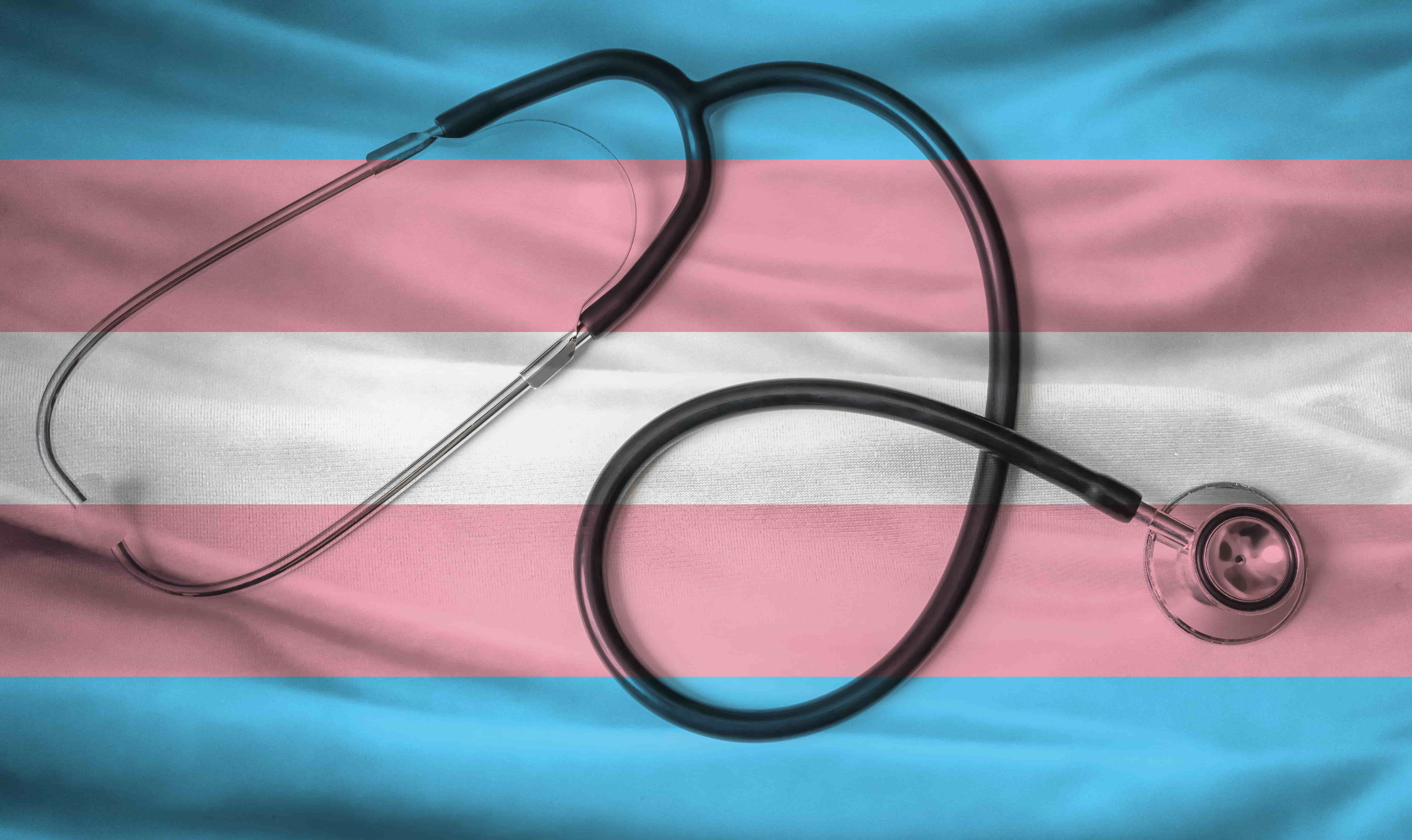Federal judge refuses to throw out transgender West Virginians’ health insurance lawsuit
Judge rules a Medicaid recipient, a state employee, and his spouse can sue for denial of coverage for medically necessary care.

A federal judge has denied West Virginia’s request to dismiss a lawsuit brought by three transgender residents, who are challenging the state’s ban on providing insurance coverage for gender-affirming care in both Medicaid and its state employee health plan.
Judge Robert Chambers, of the U.S. District Court for the Southern District of West Virginia, found that the state’s Department of Health and Human Resources waived its immunity from being sued over the exclusion — which contains no exceptions based on individual needs or medical circumstances — when it accepted federal assistance for expanded Medicaid under the Affordable Care Act.
Chambers also found that Ted Cheatham, the chief administrative officer of the Public Employees Insurance Agency, which oversees the state employee health plan, is not exempt from prosecution because he has the authority, under statute, to grant the plaintiffs access to gender-affirming care.
As such, the class-action lawsuit — filed against the West Virginia Department of Health and Human Resources, its Bureau for Medical Services, and the Public Employees Insurance Agency, as well as their respective lead officials — can move forward.
“Assuming that the Plaintiff’s allegations are true…WVDHHR enacted a clear policy that excludes gender-confirming surgical care with no exceptions,” Chambers wrote in his opinion. ‘In doing so, WVDHHR caused a concrete injury to Plaintiff Fain by constructing an allegedly discriminatory barrier between him and health insurance coverage. This barrier constitutes a concrete, non-speculative injury. Given this injury, Fain has standing to sue, and his claims challenging the policy are ripe for review.
“To the extent that the Exclusion does not constitute an outright denial, the Court finds that a request for gender-confirming surgery would be futile,” Chambers continued. “To hold otherwise would require an individual to request a benefit even when he or she knows that the defendant maintains a clear policy to deny that request. Such a request would be nothing more than a formality and is unnecessary for the purposes of Plaintiffs’ claims, which are purely legal. Courts do not require plaintiffs to perform such futile acts, especially when those acts could subject them to ‘personal rebuffs.’
“…Defendant Cheatham argues that Plaintiffs’ injuries are not traceable to him because the policy precluding coverage for Martell’s gender-confirming care is contained in The Health Plan’s HMO policy. However, that does not accurately address Plaintiffs’ allegations,” Chambers continued in his opinion. “Plaintiffs have alleged that their injuries can be traced to Cheatham because he only approves the discriminatory policies (including The Health Plan’s HMO policy) and refuses to provide a non-discriminatory alternative.
“Both allegations are plausible because Cheatham is statutorily responsible for administering PEIA, including overseeing ‘provider negotiations, provider contracting and payment, designation of covered and noncovered services, [and] offering of additional coverage options or cost containment incentives,'” Chambers added. “…Given that Cheatham is tasked with ‘designation of covered and noncovered services’ and ‘offering [] additional coverage options,’ he is statutorily authorized to grant Plaintiffs access to gender-confirming care.”
As such, Chambers finds, the lawsuit filed by the three plaintiffs should be allowed to go forward. A future date for oral arguments has not yet been set.
See also: Transgender man challenges Iowa’s ban on Medicaid coverage for transition-related surgery
The three plaintiffs in the case are: Christopher Fain, a 44-year-old college student and transgender clothing store employee on Medicaid; Brian McNemar, a 38-year-old cisgender accountant at a state hospital who is on the employee health care plan; and McNemar’s transgender spouse, 33-year-old Zachary Martell.
Due to the denial of insurance coverage for hormones and even regular office visits with a primary health care provider, Martell and McNemar have been forced to either pay out-of-pocket expenses in full or forego care altogether.
The plaintiffs’ class-action lawsuit alleges that the blanket exclusions in both the Medicaid program and state employee health insurance plan violate the plaintiffs’ right to equal protection under the law, discriminating on the basis of both sex and transgender status.
The lawsuit also alleges the insurance exclusion violates nondiscrimination protections contained in Section 1557 of the Affordable Care Act, as well as requirements within West Virginia’s Medicaid Act that dictate that coverage must be provided to all eligible individuals and that the coverage provided “not be less in amount, duration, or scope” than coverage provided to other Medicaid recipients.
The plaintiffs are requesting that a judge issue both preliminary and permanent injunctions preventing the state from refusing to cover medically necessary gender-affirming care.
Avatara Smith-Carrington, a Tyron Garner Memorial Law Fellow and attorney with Lambda Legal, which is representing the plaintiffs, praised Chambers’ decision as a short-term victory.
“No one should be denied coverage for health care simply because they are transgender,” Smith-Carrington said in a statement. “We are very pleased that Judge Chambers found that Lambda Legal’s challenge to the state’s categorical denial of gender-confirming care to transgender Medicaid and PEIA participants deserves to be heard on the merits. The state’s denial of health care inflicts severe harms on transgender West Virginians, and we are grateful our clients will get their day in court.”
Read more:
Kansas Republicans trying to ram through trans athlete ban in athlete compensation bill
Demi Lovato comes out as nonbinary, changes pronouns to they/them
Tennessee governor bans transgender youth from accessing gender-affirming medical care
Support Metro Weekly’s Journalism
These are challenging times for news organizations. And yet it’s crucial we stay active and provide vital resources and information to both our local readers and the world. So won’t you please take a moment and consider supporting Metro Weekly with a membership? For as little as $5 a month, you can help ensure Metro Weekly magazine and MetroWeekly.com remain free, viable resources as we provide the best, most diverse, culturally-resonant LGBTQ coverage in both the D.C. region and around the world. Memberships come with exclusive perks and discounts, your own personal digital delivery of each week’s magazine (and an archive), access to our Member's Lounge when it launches this fall, and exclusive members-only items like Metro Weekly Membership Mugs and Tote Bags! Check out all our membership levels here and please join us today!




























You must be logged in to post a comment.